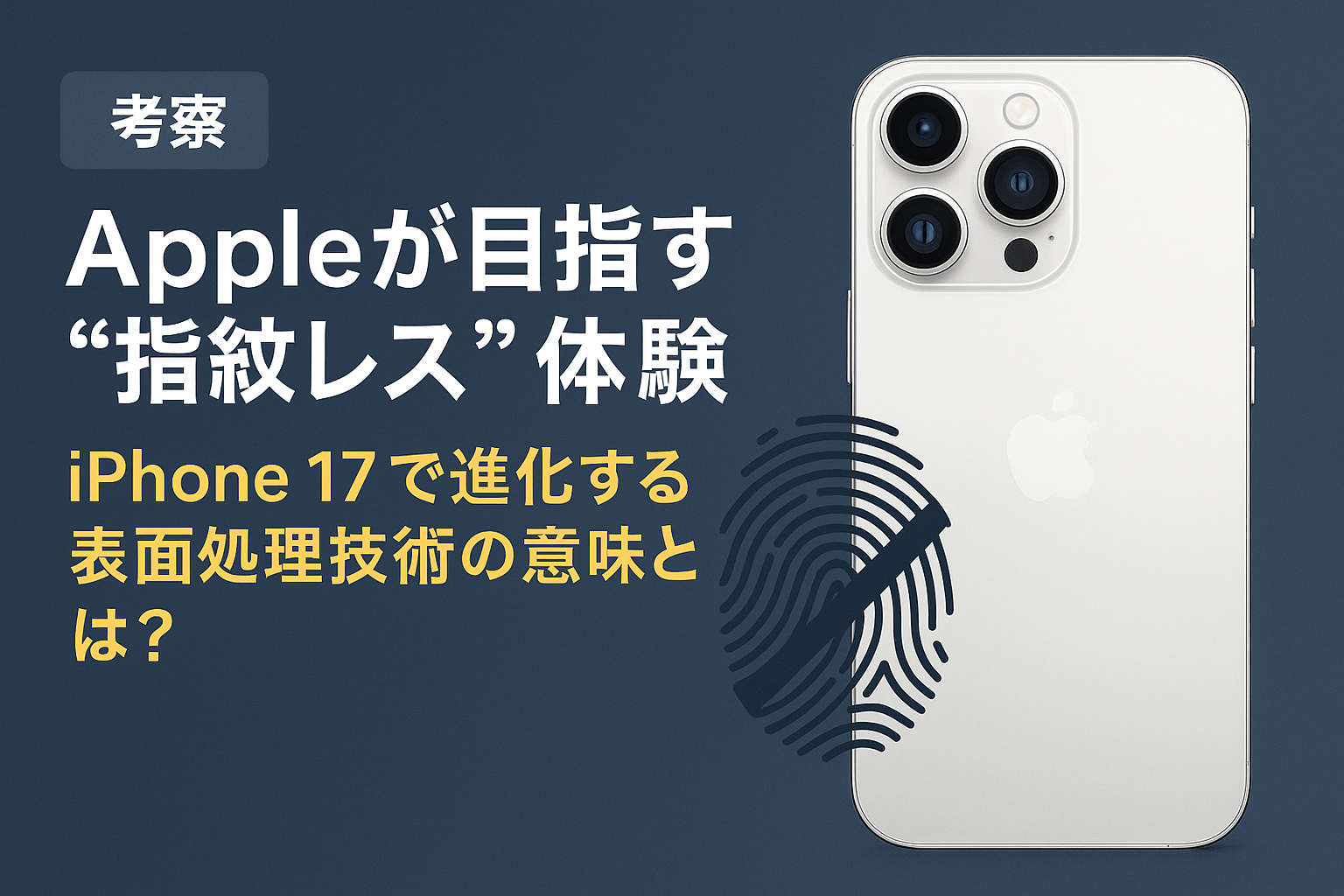A newly filed patent by Apple hints at subtle yet meaningful improvements coming to the next generation of iPhones. The focus this time is on advancements in anodizing processes for metal enclosures and improvements to fingerprint-resistant oleophobic coatings.
Glossy Aluminum = The End of the Fingerprint Problem?
Rumors suggest that the iPhone 17 series—from the standard model to the Pro series—will adopt aluminum alloy enclosures. Notably, the Pro and Pro Max models are expected to feature glossy finishes and unified aluminum construction that incorporates the rear camera bump into the body.
However, while a glossy finish is visually striking, it has the major downside of being highly prone to visible fingerprints. The newly filed patent proposes a solution: a coating method with enhanced oleophobic properties, significantly reducing fingerprint smudging.
The Effectiveness of Ionic Liquid Coating
The patented technology describes the use of ionic liquids in the coating process, dramatically boosting oleophobic performance. Diagrams included in the filing show an increased contact angle, indicating a stronger ability to repel water and oil. This results in surfaces that are easier to clean—even when smudged with dirt or fingerprints.
A Future Where iPhones Stay “Beautiful for Longer”
This innovation isn’t merely about satisfying cleanliness enthusiasts. It reflects Apple’s deeper design philosophy: preserving visual beauty over time.
For a device like the iPhone that users handle daily, fingerprint buildup and grime are unavoidable concerns. Apple’s approach to tackling this issue at the hardware level exemplifies its trademark attention to every detail of the user experience.
Conclusion
It’s still unclear whether the iPhone 17 series will implement this patented technology. However, improvements like “no fingerprints” and “easier cleaning” go beyond aesthetics—they contribute directly to long-term satisfaction. Apple’s “next big move” might just begin in the smallest, least visible details.

